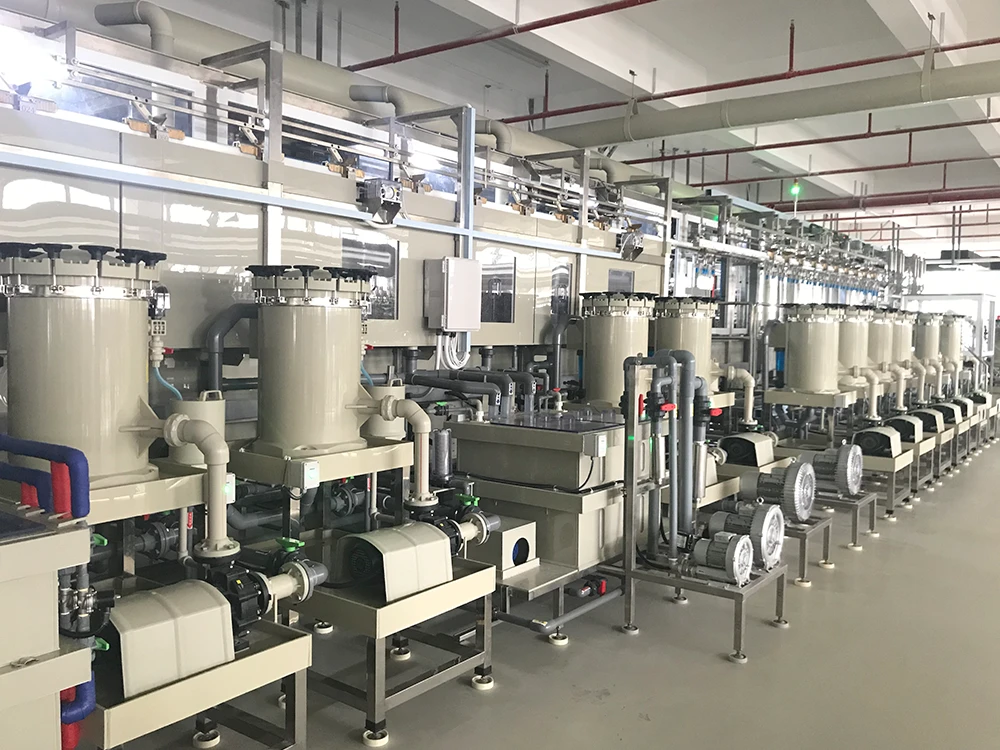
# Electroplating Chemical Filtration: Enhancing Efficiency and Quality in Metal Finishing Processes
Electroplating is a critical process in the metal finishing industry, used to apply a thin layer of metal onto a substrate to enhance its properties, such as corrosion resistance, wear resistance, and aesthetic appeal. However, the efficiency and quality of electroplating heavily depend on the purity of the chemical solutions used. This is where electroplating chemical filters come into play, ensuring that the plating baths remain free from contaminants that could compromise the final product.
## The Importance of Chemical Filtration in Electroplating
Chemical filtration in electroplating is essential for maintaining the integrity of the plating solution. Contaminants such as particulate matter, organic impurities, and metallic ions can accumulate in the plating bath over time, leading to defects in the plated layer, such as pits, roughness, and uneven thickness. These defects not only affect the appearance of the finished product but also its functional properties.
By employing high-quality electroplating chemical filters, manufacturers can remove these contaminants, ensuring a consistent and high-quality finish. This not only improves the aesthetic and functional qualities of the plated products but also extends the life of the plating bath, reducing the need for frequent solution changes and lowering operational costs.
## Types of Electroplating Chemical Filters
There are several types of filters used in electroplating processes, each designed to target specific types of contaminants:
### 1. Particulate Filters
Particulate filters are designed to remove solid particles from the plating solution. These particles can originate from various sources, including dust, debris from the substrate, or by-products of the plating process. Particulate filters typically use materials such as cellulose, polypropylene, or ceramic to trap these particles, preventing them from settling on the substrate and causing defects.
### 2. Carbon Filters
Carbon filters are used to remove organic impurities from the plating solution. Organic contaminants can come from oils, greases, or other organic compounds that may be present in the plating bath. Activated carbon is highly effective at adsorbing these impurities, ensuring that the plating solution remains clean and free from organic contaminants.
### 3. Ion Exchange Filters
Ion exchange filters are used to remove metallic ions from the plating solution. These ions can accumulate over time and interfere with the plating process, leading to poor adhesion, uneven plating, or other defects. Ion exchange filters work by exchanging unwanted ions in the solution with harmless ions, effectively purifying the plating bath.
## Benefits of Using Electroplating Chemical Filters
The use of electroplating chemical filters offers numerous benefits to the metal finishing industry:
### 1. Improved Product Quality
By removing contaminants from the plating solution, chemical filters help ensure that the plated layer is uniform, smooth, and free from defects. This results in a higher-quality finished product that meets or exceeds industry standards.
### 2. Increased Efficiency
Clean plating solutions allow for more efficient plating processes, reducing the time and energy required to achieve the desired finish. This can lead to significant cost savings over time.
### 3. Extended Bath Life
Chemical filters help maintain the purity of the plating solution, reducing the frequency of bath changes and the associated costs. This not only saves money but also minimizes downtime, allowing for more continuous production.
### 4. Environmental Benefits
By reducing the need for frequent bath changes and minimizing waste, chemical filters contribute to more sustainable and environmentally friendly plating processes. This is increasingly important in today’s eco-conscious manufacturing environment.
## Conclusion
Electroplating chemical filters play a crucial role in enhancing the efficiency and quality of metal finishing processes. By removing contaminants from the plating solution, these filters help ensure that the final product meets the highest standards of quality and performance. Whether you’re looking to improve product quality, increase efficiency, or reduce environmental impact, investing in high-quality electroplating chemical filters is a smart choice for any metal finishing operation.
Keyword: electroplating chemical filter
